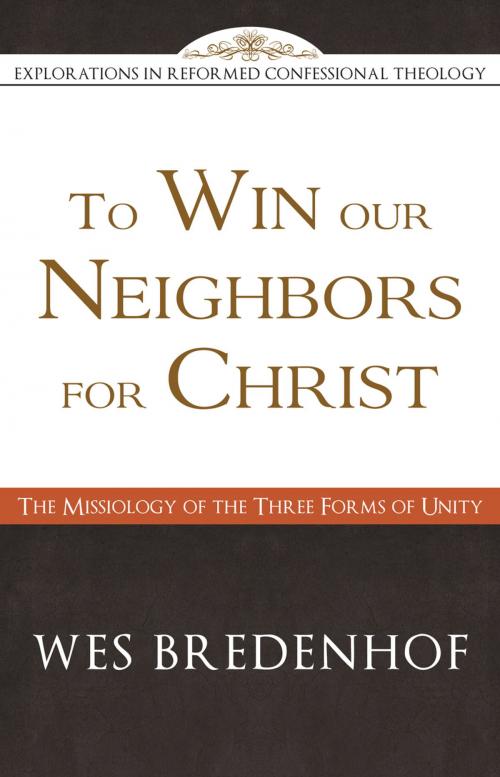| Author: | Wes Bredenhof | ISBN: | 9781601783769 |
| Publisher: | Reformation Heritage Books | Publication: | December 20, 2015 |
| Imprint: | Language: | English |
| Author: | Wes Bredenhof |
| ISBN: | 9781601783769 |
| Publisher: | Reformation Heritage Books |
| Publication: | December 20, 2015 |
| Imprint: | |
| Language: | English |
In many modern histories of Christian missions, the Protestant Reformation of the sixteenth century is depicted as a movement lacking missionary zeal. it has virtually become a given that the Reformation was not oriented to the church’s missionary task. in to win our neighbors for Christ, Wes Bredenhof answers these charges, proving that it is a mistake to say the Reformation and the confessional documents it produced have nothing to say about missions. the author demonstrates that the three forms of Unity—the Belgic Confession, the Heidelberg Catechism, and the Canons of Dort — properly understood, have much to off er the study of missions. more importantly, they encourage us to care about a world lost in unbelief, making us more mission oriented and outward looking.
In many modern histories of Christian missions, the Protestant Reformation of the sixteenth century is depicted as a movement lacking missionary zeal. it has virtually become a given that the Reformation was not oriented to the church’s missionary task. in to win our neighbors for Christ, Wes Bredenhof answers these charges, proving that it is a mistake to say the Reformation and the confessional documents it produced have nothing to say about missions. the author demonstrates that the three forms of Unity—the Belgic Confession, the Heidelberg Catechism, and the Canons of Dort — properly understood, have much to off er the study of missions. more importantly, they encourage us to care about a world lost in unbelief, making us more mission oriented and outward looking.















